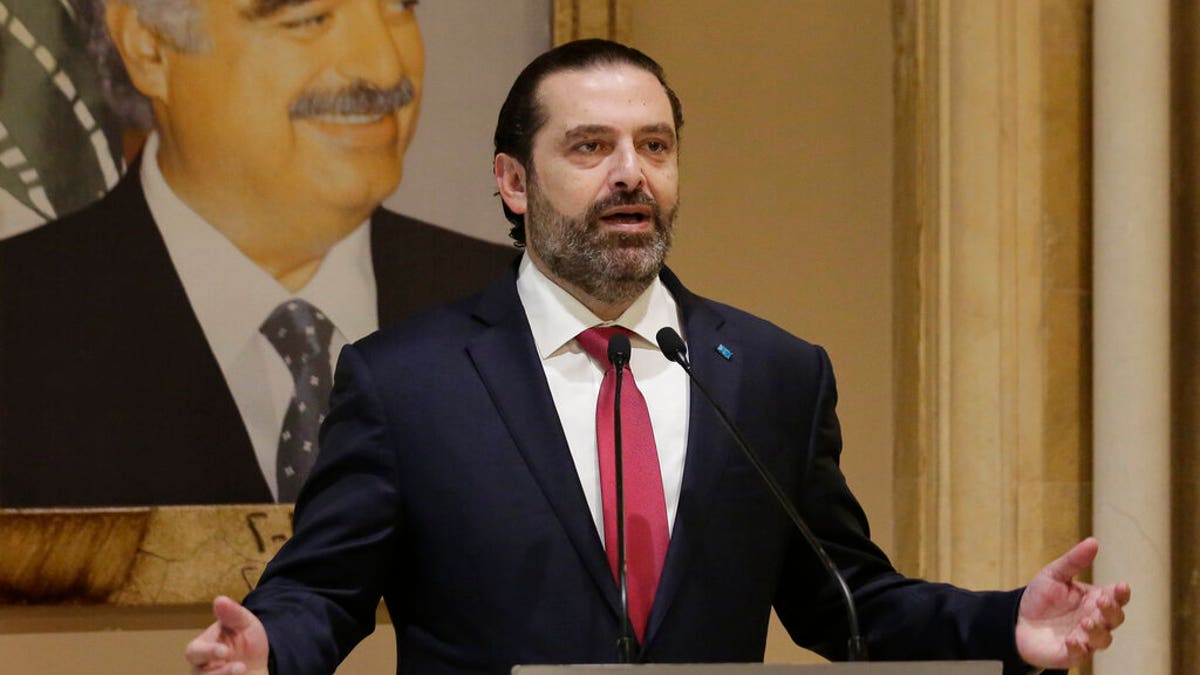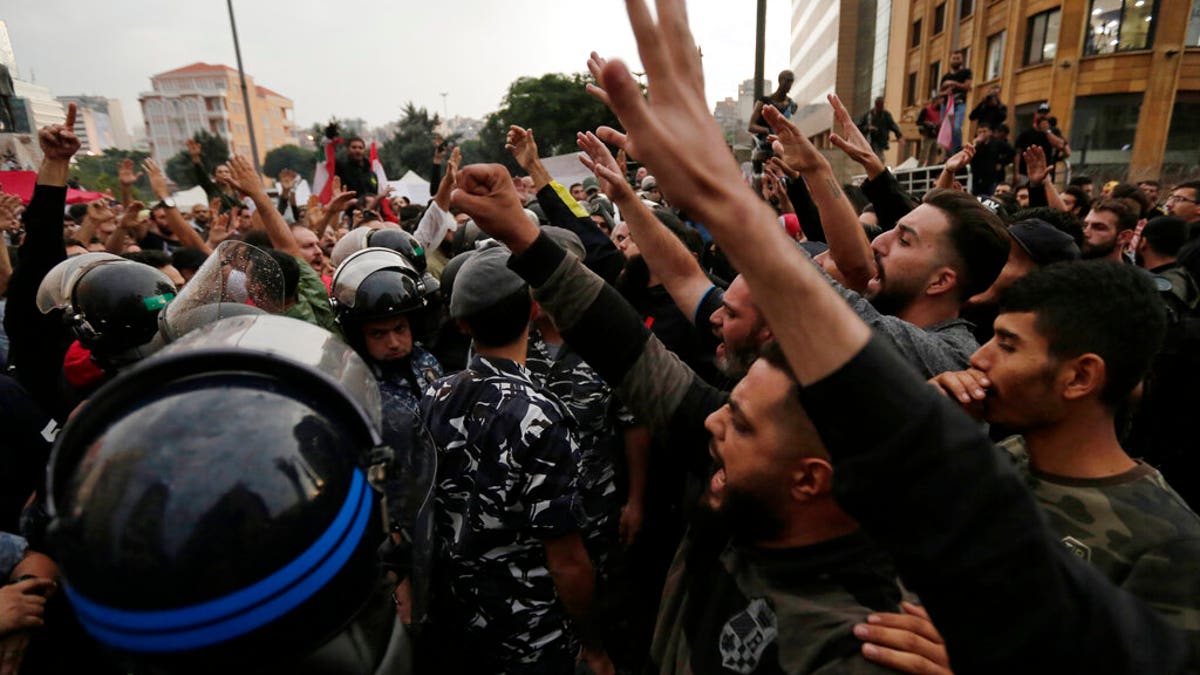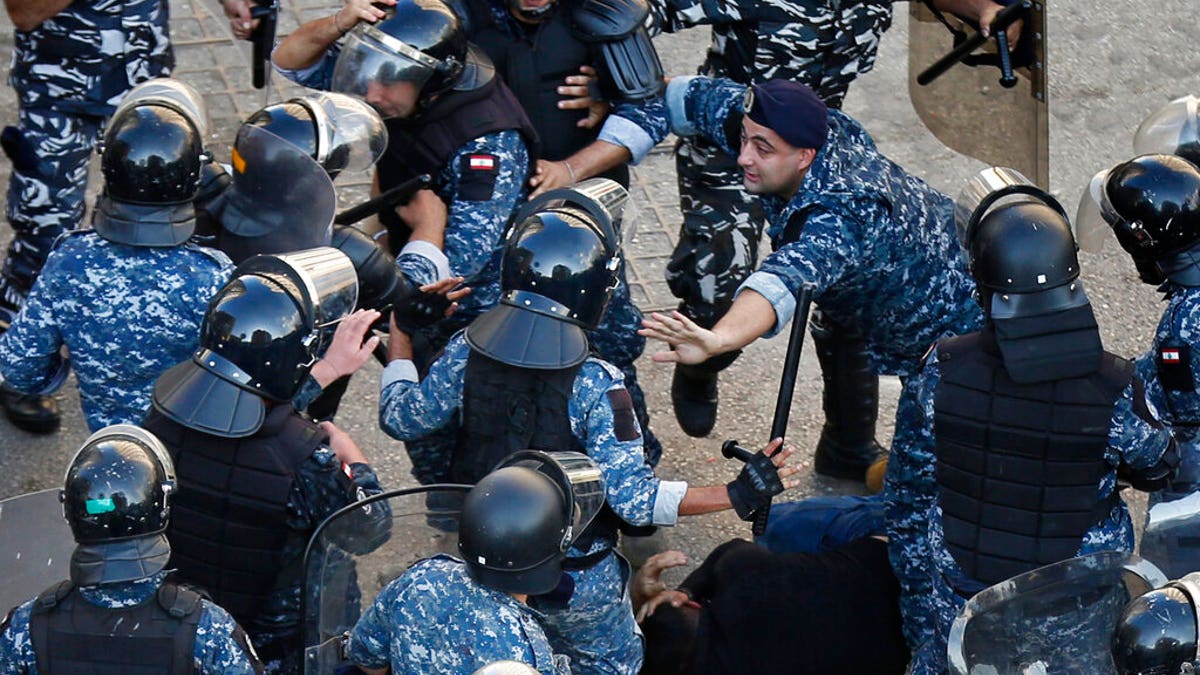Fox News Flash top headlines for Oct. 29
Fox News Flash top headlines for Oct. 29 are here. Check out what's clicking on Foxnews.com
Lebanon’s prime minister announced his resignation Tuesday following nationwide protests that have paralyzed the country for nearly two weeks.
In a televised announcement, PM Saad Hariri stated that he was stepping down amid his country’s anti-government demonstrations, relinquishing political power to Lebanon President Michel Aoun.
LEBANON PARALYZED BY NATIONWIDE PROTESTS OVER PROPOSED TAXES

Lebanese Prime Minister Saad Hariri speaks during an address to the nation in Beirut, Lebanon, Tuesday, Oct. 29, 2019. (AP)
“It has become necessary for us to make a great shock to fix the crisis,” Hariri said. “Our responsibility today is how we protect Lebanon and revive its economy.”
The move comes only hours after a mob of supporters from the Hezbollah party attacked anti-government protest camps in the country’s capital of Beirut.
THOUSANDS OF LEBANON DEMONSTRATORS KEEP PRESSURE ON GOVERNMENT

Lebanese riot policemen separates between anti-government protesters, left, and Hezbollah supporters, right during a protest in Beirut, Lebanon, Thursday, Oct. 24, 2019. (AP)
What began on Oct. 17 as a fight over a tax on Whatsapp calls has now erupted into “a war scene,” according to a local TV presenter.
The predominately non-violent demonstrations were disrupted by the Shia-Islamist group who are upset that their country is being paralyzed politically and economically.
Soldiers and riot police have been trying to separate the two groups using non-deadly force, but have been unsuccessful.
Hezbollah leader, Sayyed Hassan Nasrallah, stated Friday that the roads around Beirut's center should be reopened and hinted that the protestors were being funded by foreign enemies attempting to infiltrate their agendas.
“Someone is trying to pull it… toward a civil war,” Nasrallah said Friday about the country’s uprisings.

A riot police officer, center right, stops other policemen from beating a protester who lies on the ground, after clashes erupted between an anti-government protesters and Hezbollah supporters near the government palace, in Beirut, Lebanon, Tuesday, Oct. 29, 2019. (AP)
Hezbollah, the country’s most powerful armed group, backs a majority of the Lebanese government since its formation following the 1975-1990 civil war.
They are represented by Parliament Speaker and Shia Muslim Nabih Berri, who traditionally splits up political leadership equally with a prime minister representing Sunni Muslims and a president representing Maronite Christians.
Berri has been called to resign over his involvement in an ineffective government and economic system.
“We just want to say that this is the first of many,” a protester told The Guardian after Hariri’s resignation. “We’re waiting for the others to show some dignity. But I doubt they have it.”
With the banks closed for the tenth day in a row, many political operatives argue that the protesting is only hurting their cause.
CLICK HERE FOR THE FOX NEWS APP
“Even if the protesters leave the streets, the real problem facing them is what they are going to do with the devaluation of the pound,” a Lebanese economist, Toufic Gaspard, told Reuters.
The Associated Press contributed to this report.









































